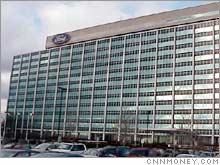Competitor General Motors (Charts) and Ford (Charts) have both seen their cost of capital needed by their finance units rise due to the junk bond status for the two corporations. In response, GM announced in April it would sell a 51 percent stake in GMAC to a private equity firm, a deal that is now in the process of being closed. Ford executives have previously said they weren't looking to sell a stake in Ford Credit, which like GMAC has been a major source of profits for the company that has been losing money on its core auto business. The Ford finance unit has a much more limited line of business than GMAC, which has a full line of mortgage and insurance offerings. But while GM has moved to correct some of its financial problems this year, Ford has seen its problems worsen. In July its U.S. sales trailed Toyota for the first time in history and it slashed fourth quarter production plans by 21 percent to try to addressed continued weak sales, especially in its key light truck segment. It has said it will announce adjustments to its reorganization plan in September. A sale of its Premier Auto Group, which includes the Jaguar and Land Rover brands, perhaps to a group led by former Ford CEO Jac Nasser, is another move that is reportedly being considered by Ford, as is a broader cash offer to union-represented workers at Ford to get them to retire or leave the company. The company may even consider taking itself private, according to one recent report. Ford director Robert Rubin, a chairman of the executive committee at Citigroup (Charts), resigned from the Ford board Friday, saying that as the automaker "undertakes its upcoming review of strategic options, Citigroup's multi-faceted relationship with Ford could raise a question whether my relationship with Ford and Citigroup creates an appearance of conflict." Citigroup has been working to expand its auto-lending portfolio, according to the News. The financial services firm was one of the key players in the GMAC deal. The incredible shrinking car companies 
| 
